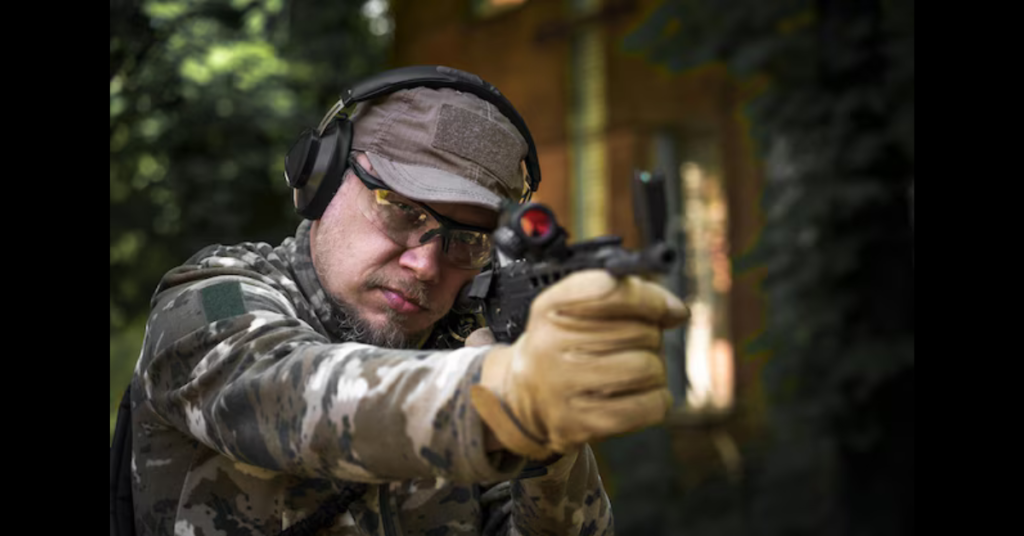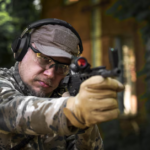The occurrence of gun violence has left an indelible mark on communities across the United States. In particular, mass shootings have become an alarmingly frequent tragedy, spurring intense debates about gun control, mental health, and public safety. One state that has not been exempt from this is Maine. Known for its picturesque landscapes and generally low crime rate, Maine’s shootings — though less frequent compared to other states — serve as a sobering reminder that gun violence can strike anywhere, at any time Maine Shooting
In this comprehensive article, we will delve into the details surrounding Maine shootings, examining specific incidents, their causes, the social and political fallout, and the wider national context. We will also explore how these tragic events have affected the communities involved, and what steps have been taken in response to reduce the likelihood of future violence.
Background on Gun Violence in Maine
General Crime and Gun Ownership in Maine
Maine is often ranked among the safest states in the U.S. It has one of the lowest violent crime rates, and its rural nature, with a population largely spread out across small towns, helps contribute to its perception as a peaceful place. However, like many states, Maine has a strong culture of gun ownership. Hunting, target shooting, and other firearm-related activities are popular, particularly in rural areas.
In terms of gun laws, Maine stands out for its relatively permissive regulations. The state allows open carry of firearms without a permit, and concealed carry permits are also relatively easy to obtain. As a result, Maine residents have a high rate of gun ownership. Despite this, gun violence incidents in the state are rare in comparison to more populous states or those with higher crime rates, such as California or Texas.
Gun Control Laws in Maine
Maine’s laws regarding firearms are considered relatively lenient by national standards. The state follows the federal background check system, but it does not require background checks for private sales of firearms. Maine Shooting voters narrowly rejected a 2016 ballot measure that would have expanded background checks to private sales, signaling the state’s long-standing cultural support for gun rights.
Despite its lenient laws, gun violence has not been as pervasive in Maine Shooting as in other parts of the country. However, shootings that do occur — particularly mass shootings — spark debates about whether Maine’s gun laws should be tightened or whether the issue lies in other areas, such as mental health or law enforcement procedures.
Notable Maine Shootings
The Lewiston Shooting
The city of Lewiston, Maine Shooting, was the site of one of the state’s most tragic and high-profile shootings. On October 25, 2023, a mass shooting occurred at two locations: a bowling alley and a bar. The gunman, identified as Robert Card, opened fire indiscriminately, leaving 18 dead and 13 others injured. This was the deadliest mass shooting in Maine’s history and one of the worst in New England.
The gunman used a high-powered rifle, which he had legally obtained. Investigators later revealed that the shooter had a history of mental health issues and had been under care for hearing voices and other symptoms of psychosis. Despite these issues, he was able to access firearms, highlighting potential gaps in the mental health and background check systems.
The aftermath of the Lewiston Shooting
The Lewiston shooting sent shockwaves throughout Maine, a state not accustomed to large-scale acts of gun violence. The tragedy garnered national attention, and debates quickly surfaced about the state’s gun laws, mental health care, and public safety measures.
In the wake of the shooting, many community leaders and advocates pushed for stricter gun laws. Proposals included closing loopholes in the background check system, particularly for private gun sales, and implementing red flag laws, which would allow law enforcement to temporarily confiscate firearms from individuals deemed a threat to themselves or others. However, opposition from gun rights advocates made any significant legislative action difficult, highlighting the deep cultural divide in Maine over the role of firearms in society.
2019 Aroostook County Shooting
Another significant incident occurred in April 2019 in Aroostook County, one of Maine’s most rural areas. A man named Matthew Davis was convicted of killing two people and setting fire to their house in the small town of Castle Hill. Davis was armed and dangerous, having stolen multiple vehicles and firearms during a crime spree that shocked the local community.
The Aroostook County shooting emphasized the vulnerability of rural areas in Maine. Law enforcement response times can be lengthy in such areas due to the geographic distances involved, and many small towns do not have their own police departments, relying instead on county sheriffs or state troopers. In Davis’s case, the difficulty in tracking his movements over the vast, rural landscape underscored some of the challenges law enforcement faces in Maine.
Domestic Violence Shootings
A significant portion of Maine’s shootings are related to domestic violence. In many cases, perpetrators use firearms to harm or kill family members or intimate partners. Maine’s rate of domestic violence-related shootings is relatively high, which has prompted calls for reforms in domestic violence laws and firearms regulations. Advocates argue that stronger measures, such as mandatory background checks for all gun sales and red flag laws, could help prevent firearms from falling into the hands of dangerous individuals, particularly those with a history of domestic violence.
One prominent example of a domestic violence shooting in Maine occurred in 2018 in Hebron, where a man shot and killed his estranged wife and another man before turning the gun on himself. The incident was part of a larger pattern of domestic violence-related gun deaths that continue to plague the state.
Causes of Gun Violence in Maine
Mental Health
Mental health issues are frequently cited as a contributing factor in many of Maine’s shootings, particularly in the case of mass shootings. In the Lewiston incident, for example, the shooter had a well-documented history of mental health problems. Despite this, he was able to legally acquire firearms, prompting questions about the adequacy of Maine’s mental health care system and its intersections with gun control laws.
Maine, like many other states, faces challenges in providing adequate mental health care, particularly in rural areas where access to specialized services can be limited. Long wait times for mental health treatment, insufficient funding for mental health programs, and a lack of coordination between health care providers and law enforcement have all been cited as factors that contribute to shootings involving mentally ill individuals.
Domestic Violence
As mentioned earlier, domestic violence is a significant driver of gun violence in Maine. Many domestic violence incidents escalate to the point where firearms are used, leading to tragic outcomes. According to the Maine Coalition to End Domestic Violence, guns are used in approximately half of the state’s domestic violence-related homicides.
Domestic violence advocates have long called for stricter laws to prevent abusers from accessing firearms. Some have suggested mandatory background checks for all gun purchases, including private sales, as well as the introduction of red flag laws that would allow authorities to confiscate firearms from individuals with a history of domestic violence.
Substance Abuse
Substance abuse, particularly alcohol and opioids, is another factor that contributes to gun violence in Maine. The state has struggled with a growing opioid crisis in recent years, and many shootings, particularly in domestic settings, involve individuals under the influence of drugs or alcohol.
Substance abuse can exacerbate existing mental health issues and contribute to violent behavior. Efforts to reduce gun violence in Maine must therefore take into account the role of substance abuse, particularly in rural areas where access to treatment services may be limited.
Easy Access to Firearms
Maine’s relatively lenient gun laws make it easy for individuals to obtain firearms, even if they have a history of mental illness or domestic violence. While federal background checks are required for gun purchases from licensed dealers, private sales — which account for a significant portion of gun transactions in Maine — are not subject to the same requirements. This loophole allows individuals who might otherwise be prohibited from purchasing a firearm to obtain one through a private sale.
The ease of access to firearms has been a focal point of the debate over gun violence in Maine. Advocates for stricter gun control laws argue that closing loopholes in the background check system and implementing red flag laws would help reduce the risk of shootings. However, opponents argue that such measures would infringe on the rights of law-abiding gun owners and would do little to prevent criminals from obtaining firearms through illegal means.
The Impact of Shootings on Maine Communities
Psychological and Emotional Impact
Shootings have a profound psychological and emotional impact on the communities in which they occur. Survivors, families of victims, and community members are often left grappling with feelings of grief, anger, and fear in the aftermath of a shooting.
In the case of the Lewiston shooting, the entire community was affected by the tragedy. Many residents expressed shock and disbelief that such violence could occur in their quiet town, and the emotional toll was palpable in the days and weeks following the shooting. Memorials and vigils were held to honor the victims, and counseling services were made available to those affected.
The psychological impact of gun violence can be long-lasting, particularly for survivors and first responders. Many individuals who experience or witness a shooting develop symptoms of post-traumatic stress disorder (PTSD), which can have a significant impact on their mental health and well-being. Providing adequate mental health support in the aftermath of a shooting is therefore crucial to helping communities heal.
Economic Impact
The economic impact of shootings can be significant, particularly in smaller communities where resources are limited. The immediate costs of responding to a shooting — including law enforcement, medical care, and emergency services — can strain local budgets. Additionally, businesses in the affected area may experience a decline in customers, as residents and visitors may be hesitant to frequent locations associated with violence.
In Lewiston, for example, businesses near the sites of the shooting reported a drop in foot traffic in the weeks following the tragedy. The economic ripple effects of a shooting can be far-reaching, affecting not only the immediate area but also the broader region.
Social and Political Impact
Shootings often have a polarizing effect on communities, particularly when it comes to debates over gun control. In Maine, the Lewiston shooting reignited discussions about the state’s gun laws, with some residents calling for stricter regulations and others defending their right to bear arms.
The political fallout from shootings can be intense, as lawmakers are often pressured to take action in response to public outcry. In Maine, state legislators have introduced several bills aimed at tightening gun control laws, but the issue remains deeply divisive. The cultural importance of firearms in Maine, particularly in rural areas, makes it difficult to reach a consensus on how to address gun violence.
Responses to Gun Violence in Maine
Law Enforcement and Public Safety Measures
In the wake of mass shootings, law enforcement agencies often reevaluate their response protocols and public safety measures. In Maine, law enforcement agencies have taken steps to improve their preparedness for active shooter situations, including increased training and coordination with local schools and businesses.
Additionally, some communities have implemented safety measures such as installing security cameras, hiring armed security personnel, and conducting active shooter drills in schools and public places. These measures are aimed at preventing shootings and ensuring a swift and effective response in the event of an attack.
Legislative Efforts
As mentioned earlier, the Lewiston shooting and other incidents of gun violence in Maine have prompted calls for legislative action. Several proposals have been introduced in the Maine Legislature aimed at tightening gun control laws, including:
- Expanded Background Checks: Advocates have pushed for a law that would require background checks for all gun sales, including private transactions. This measure has been met with resistance from gun rights groups, but supporters argue that it would close a dangerous loophole in Maine’s gun laws.
- Red Flag Laws: Red flag laws, also known as extreme risk protection orders, allow law enforcement to temporarily confiscate firearms from individuals deemed a threat to themselves or others. While several states have implemented red flag laws, Maine has yet to pass such legislation. Proponents argue that red flag laws could help prevent shootings by keeping guns out of the hands of dangerous individuals.
- Mental Health Reforms: Addressing the mental health crisis is another key component of efforts to reduce gun violence in Maine. Lawmakers have proposed increasing funding for mental health services, particularly in rural areas, and improving coordination between mental health providers and law enforcement.
Community Responses
In addition to legislative efforts, many communities in Maine have taken steps to address gun violence at the local level. Community organizations, advocacy groups, and faith-based groups have come together to provide support to victims of gun violence and raise awareness about the issue.
Some communities have also implemented violence prevention programs aimed at reducing the risk of shootings. These programs often focus on providing mental health support, addressing domestic violence, and promoting conflict resolution skills.
Conclusion
Gun violence in Maine, while less frequent than in other states, has left a lasting impact on the state’s communities. Tragic incidents like the Lewiston shooting serve as a stark reminder of the dangers posed by firearms and the urgent need for action to prevent future violence.
Efforts to address gun violence in Maine must take a multifaceted approach, addressing issues such as mental health, domestic violence, and the easy access to firearms. While the debate over gun control remains deeply divisive, it is clear that steps must be taken to ensure the safety and well-being of Maine’s residents.
As the state continues to grapple with the aftermath of these shootings, it is crucial that lawmakers, community leaders, and citizens come together to find solutions that balance the rights of gun owners with the need for public safety. Only through collaborative efforts can Maine hope to prevent future tragedies and build a safer, more secure future for its communities.







